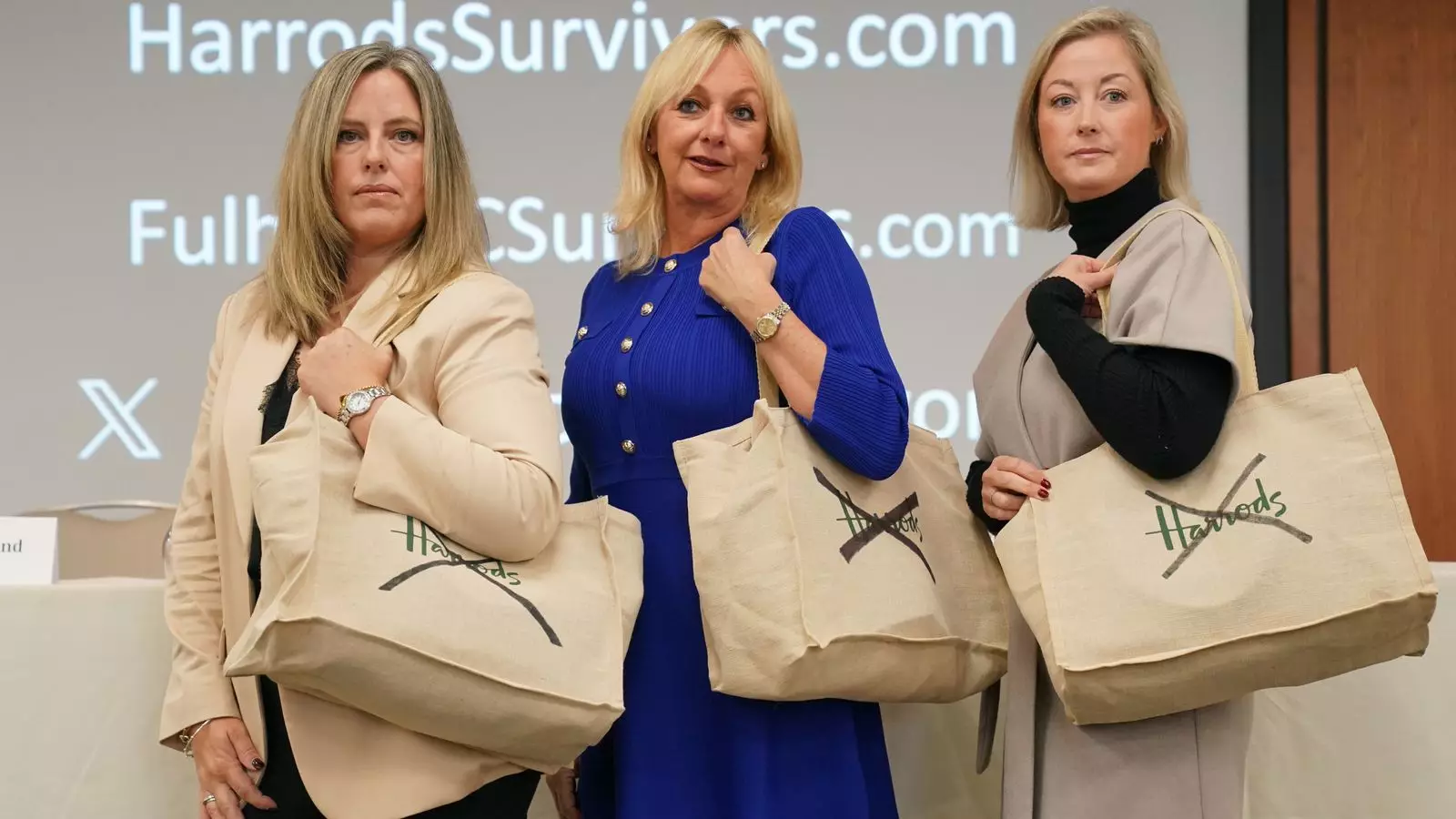In recent months, a growing number of allegations have emerged concerning the late billionaire Mohamed al Fayed, known for his ownership of Harrods and Fulham Football Club. These allegations, articulated by the Justice for Harrods Survivors group, suggest a systemic problem of abuse linked to Fayed’s empire. Shockingly, the group reports that over 400 individuals have come forward with claims of misconduct, encompassing not only alleged victims but also witnesses who have observed the disturbing behavior.
The timing of these revelations coincides with a BBC documentary that shined a spotlight on Fayed’s controversial conduct, leading to further inquiries and investigations. The range of claims being reported is extensive, from accusations of serial rape and attempted assault to more severe allegations involving minors. This pattern presents a troubling picture of alleged abuse within the institutions connected to Fayed, drawing attention to not just the incidents themselves but the environments that allegedly fostered such behavior.
The accusations against Fayed have implications that extend well beyond personal accountability. Significant organizations, including Harrods and Fulham FC, now face scrutiny due to their historical association with him. Lawyer Dean Armstrong KC, with significant concerns for those affected, stated that they now represent clients who claim to have suffered abuse within these institutions. As these revelations unfold, the public discourse shifts toward understanding the underlying systemic issues that may have allowed such abusive behavior to occur unchecked.
The Justice for Harrods Survivors group asserts that the abuse alleged in connection with Fayed amounts to what can only be described as systemic misconduct at an “industrial scale.” This characterization raises further questions about how entrenched power dynamics and institutional protections may have facilitated these actions, creating an environment where abuse could flourish. Mr. Bruce Drummond, another member of the legal team, strongly emphasized the need for accountability, indicating that the abuse alleged could only occur in a setting that provided explicit or implicit support for such behaviors.
The Beginning of Legal Action
As legal proceedings begin to take shape, it is reported that the first formal correspondence has already been sent to Harrods, marking the initiation of potential litigation. This initial letter is suggested to be the precursor for many more to follow, which hints at a drawn-out legal battle that may uncover further details surrounding the alleged misconduct. The implications of this possible litigation extend beyond financial penalties; they may lead to broader cultural reckoning within affiliated organizations, prompting necessary evaluations of workplace safety and ethics.
The multifaceted nature of the allegations has prompted a wide-ranging response, attracting attention and claims from individuals worldwide, including the US, Canada, Asia, Australia, and various parts of Europe. This international response underscores the notion that abuse does not adhere to geographical boundaries and that the implications of Fayed’s alleged actions resonate on a global scale.
Among the individuals who have publicly alleged abuse is Bianca Gascoigne, daughter of former football star Paul Gascoigne, who described a harrowing experience of grooming and sexual assault at the Harrods store. These personal testimonials add a layer of human experience to the otherwise stark legal discussions. Additionally, former Fulham Women’s captain Ronnie Gibbons also spoke out about her experiences of assault, underscoring that the consequences of such alleged actions are not confined to a singular narrative but encompass multifarious lives and experiences.
As these allegations continue to surface, society must reflect on its own complacency regarding abuse. The striking reality is that the survivors’ courage to come forward may be the first step toward dismantling the cycles of abuse that have long persisted in the shadowy corners of powerful institutions.
Overall, the evolving narrative surrounding Mohamed al Fayed serves as a sobering reminder of the urgent need for systemic reform within organizations to protect individuals from abuse. It emphasizes that there can be no room for complacency in the face of mounting evidence and survivor testimonies. The Justice for Harrods Survivors group’s efforts to seek justice could spark not only crucial legal changes but also societal shifts that demand accountability, support, and protection for all individuals within any institution. As more individuals find the courage to speak out, it is imperative that society listens and acts, rather than allowing history to repeat itself.


Leave a Reply